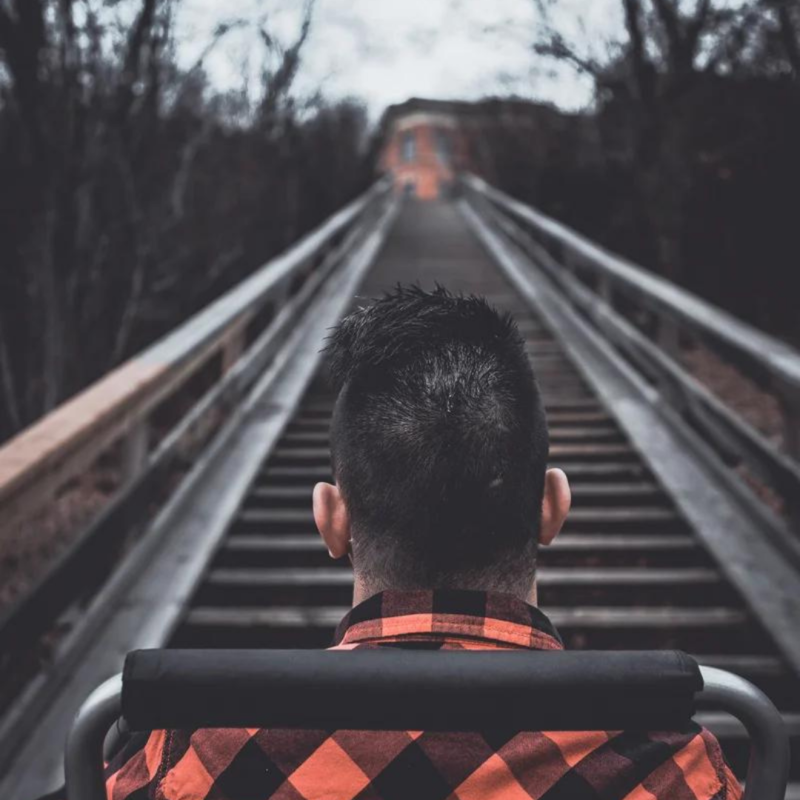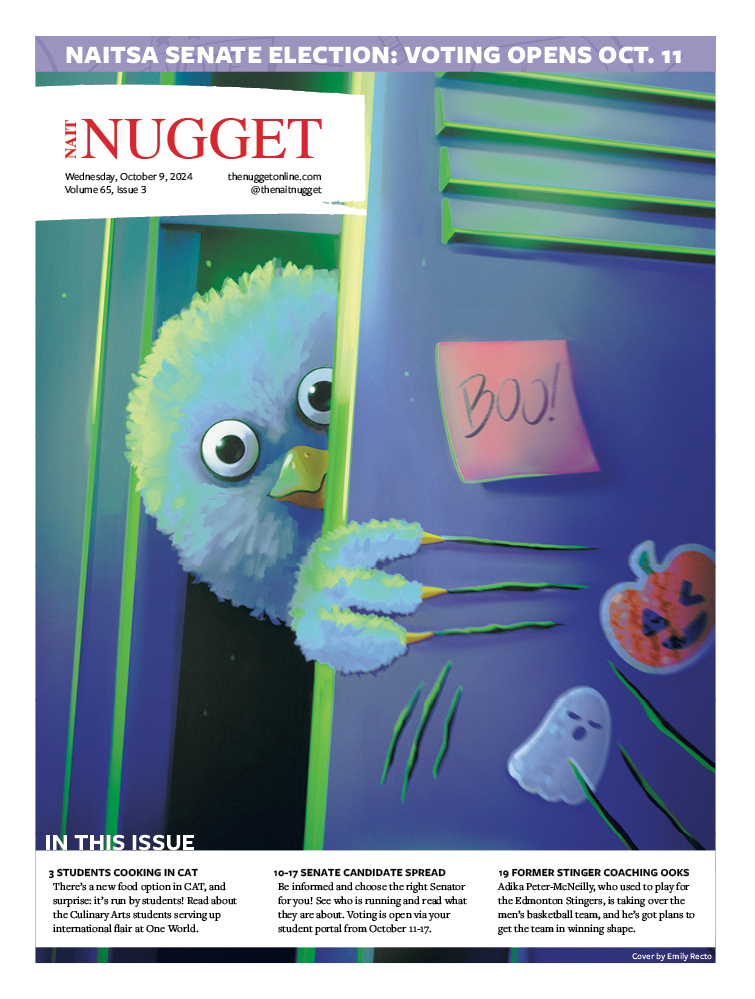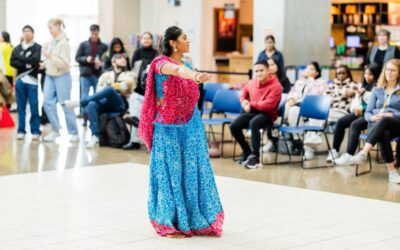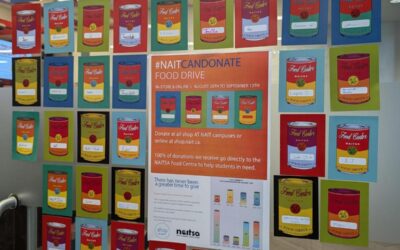By A.Jade Munsie
In a wheelchair, living with Cerebral Palsy, Brad Bartko, a graduate of NAIT’s Radio and Television program, started his initiative: disABILITY- Accessible by Design. The consultant business offers guidance to establishments to create a better, more accessible space for those with disabilities and help staff feel confident in accommodating those with a need.
“To help the staff, we get them engaged and understand people with disabilities more. If someone like me comes into their bar, comes into their restaurant, they know how to deal with me now. They’re comfortable. It’s adding more tools to their toolbelt. It’s not making an uncomfortable situation worse,” said Bartko.
Bartko, 28, and his team tour establishments in Edmonton and suggest measures to make the environment more accessible for people with disabilities – from physical barriers, such as washroom access, stairways, and doorways to staff interactions.
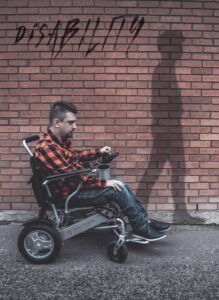
“If I’m more comfortable in your establishment, I’m coming back. I’m telling you about it, I’m telling all my friends about it, I’m telling all my family about it, and what it does is opens a brand new demographic that they never thought of serving before,” said Bartko.
disABILITY- Accessible by Design started in December of last year. It is run by Bartko, his wife Jenn, and a business associate. As of late, the company partnered with over 20 restaurants around Edmonton in the works to make these places more accessible.
“It’s been red hot. For me to tell you the position that we’re in now, I never would have dreamed of it. It’s crazy,” said Bartko.
Through his own experiences, Bartko has faced multiple challenges regarding accessible establishments. Unlike others, Bartko can’t show up to a place and run up the stairs. He says he usually has to plan and review and figure out whether or not it’ll accommodate him.
“On a Friday night, I gotta research at least 25 spots for me to see if I can get in, to see if they’re accessible, to see if there’s no stairs, no any of that,” said Bartko.
Bartko picked the hospitality industry to begin with because food and drink will always be necessary. Restaurants and bars are interactive, and a large part of the experience is service – to ultimately be taken care of.
“I saw a gap, where I would walk into a bar, and they would ask my wife what I wanted to order, and I’m like wait a minute – I can speak. Why aren’t you talking to me?” said Bartko.
The city prides itself on its inclusivity. However, for the disabled community, it doesn’t feel like that’s the case.
“Edmonton talks about being an inclusive city, but really we’re not. You’re not talking about this community, and it’s time for changes,” said Bartko.
Restaurants that partnered with Bartko’s company to see change and be a part of the initiative will see benefits going forward. However, to Bartko, most restaurants that do not want to participate don’t want other perspectives.
“They would rather be reactive instead of being proactive. And that’s a problem […] the bars around town that are being proactive are going to see the benefits now, but they’re also going to see benefits for years to come,” said Bartko.
For Bartko, it’s about all of us, together, creating a more accessible, inclusive community for those who may need help.
“A lot of people live their day-to-day lives with, I’ll use the word shackles, if I may, cause they’re very limited on what they can do or where they can go.”
Bartko is all about the “we,” not “me” mentality.
This week, Accessible by Design launched the HOPE campaign to Help One Person Everyday. Right now, Bartko envisions a totally accessible community, which starts with educating and bringing awareness.
“I’ve always wanted to help a million people. That’s been my goal. I want to expand on that, obviously. I want more than that, but the first goal is a million people in the world become better, become more aware, become more educated – for establishments to become more inclusive,” said Bartko.
For 364 days, the HOPE campaign will give away accessible aids like ramps and restaurant give cards. It’ll raise money for charity and a special giveaway for someone in need on the last day of the year.
“On day 365 – we’re going to build a house. A fully accessible house. Ramps, elevators, whatever somebody needs. We’re going to turn it into a lottery house. We’re going to raise money. People will buy tickets,” said Bartko.
The goal is to see a housing project in every major city in Canada. Bartko aims to create a wave of change that will eventually do wonders in the United States and Europe, too. He thrives on the idea of seeing a better future for the disabled community.
“I want this government, I want this community, I want this world to start taking people with disabilities respectfully, seriously and just treating us a little bit better,” said Bartko.
Bartko wants to be the voice of the disabled community. Alongside Accessible by Design, Bartko has a documentary about his life set to release next year – another endeavour that will highlight the disabled community.
“It’s about me and my life and what I’ve been doing, and what I’ve been through. But I want to show the good and the bad and the ugly about accessibility and where we are as a city and where we need to be,” said Bartko.Alberta is home to roughly 680,000 residents who identify as having a disability. disABILITY- Accessible by Design aims to help each one. If you want to learn more and get involved, follow disABILITY- Accessible by Design on Instagram.

